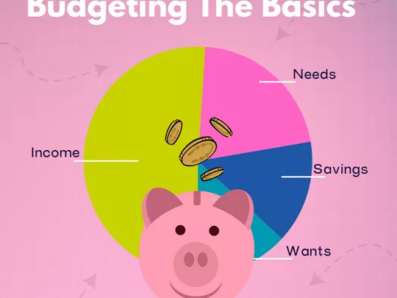The end of compulsory education is an exciting time, and iIt’s natural to become overwhelmed by everything you have to think about as you open a new chapter in your life.
Choosing your path is challenging in itself, and knowing what and where you will be studying are only two parts of a complex puzzle, especially for kids whose foster time will be coming to an end. The good news is that there are things you can do to help lighten your load and ease some of the stress during the months leading up to your next stage of life.

6 Things to do Before Starting Further Education
Look Into Your Accommodation Options
Once you’ve chosen where you will be studying, you can start looking for student housing. While some universities offer on-campus accommodation, this is not true for all of them. You should contact the university immediately if you need to register for any accommodation through them because the school will assume that you have or are in the process of arranging your own place to stay. You will also find better choices for student housing the earlier you begin your search.
Remember that cities and towns that have a lot of universities, or famous ones, will have fewer, often more expensive housing options, so don’t be tempted to procrastinate on your search as it could mean that you have fewer good options or you might have to pay more for something that doesn’t suit you as much.
Manage Your Finances
Before you head off, you should have a straightforward budget based on how much you can bring in from part-time work and what expenses you expect, to make sure you can live comfortably while you study. Your usual monthly costs, including things like utilities, rent, internet, and club memberships, as well as any one-time needs like school books, should be in this budget.
It would be a good idea to save some money beforehand, from part-time or summer work, in case of emergencies. While students with a valid student ID can also enjoy discounts at major retailers, cafés, diners, movie theatres, galleries, exhibits, concerts, and more both in person and online, it is important that your budget looks at the realistic prices of things so you don’t end up falling short.
Take Care of Your Health
Eating a nutritious, well-balanced diet is good for your body and your brain. Simply by changing your diet, and developing healthy eating habits, you may feel happier, gain a new perspective, have more stamina, and have a more positive attitude.
The good news is that good nutrition doesn’t have to be expensive or dull. While it’s better to stay away from unhealthy food, too many sweets, and oily foods, there are still plenty of wonderful, delicious, and nutritious options that can help you look and feel great. And don’t forget to exercise. Exercise can help relieve tension and stress just as successfully as antidepressants while also keeping you fit and your body and mind sharp. You can try joining a club to play a sport you love, which is a fantastic way to have fun, meet people, and stay healthy while you do it.

Plan How You Will Get Around
If you don’t live on campus, you will need to look into the pros and cons of all your transport options for getting around your new city or town.
Do your research ahead of time by looking up the bus timetables and prices of private taxis or e-hailing services in your new area to get a sense of which options would best suit you. Walking is often the cheapest way to get around campus to classes, and around town to get groceries and run errands, but think about getting a bicycle if you need to cover any distance further than a few blocks. Check if your institution has a transportation office that has any specific requirements before you start the new school year so you can avoid any potential issues.
Find Out What Shops and Features Are Nearby
Try to visit the city or town where your new campus is ahead of the new school year to get a feel for the area.
This will let you see what your shopping options are before you arrive in a fluster of nerves and excitement once school starts. You should look at things like how far you will need to travel, and the best ways to get there if your preferred school is far from any shops. After you have moved, make use of your free time until classes begin to find the local library, the closest railway station, stores, and a local doctor, as you never know when that information will come in handy. Your new roommates will most likely need to know this kind of stuff too, so find out if they would like to join you and explore together.
Take Some Time to Learn to Cook
If you are looking to learn how to start cooking, then why not watch a few YouTube videos instead of scrolling through Netflix for something to watch? You’ll be astonished by how much knowledge you can learn just by following online tutorials. Have a go at a more challenging dish once you’ve perfected a few basic ones to prepare for your weekly meals. Tinkering and trying new things in the kitchen is fun and can help make mealtimes better, so if you tasted the meal but didn’t really enjoy it, make it again and adjust the ingredients, or the amounts you used, until you’ve made something you will enjoy.
Getting ready to study after school can be a scary time filled with anxiety and stress, especially for foster children who will be leaving their foster homes, often for good. However, with good research and proper preparation, you should be able to enjoy the experience and concentrate on things like making friends and figuring out which classes are your favourite rather than if your budget will be able to stretch far enough to cover your monthly groceries.

You may also like…
Handbooks & Guides?
Are handy handbooks are designed with you in mind, full of helpful information for both you and your foster family.
Independents
Are you about to be independent or have you already left? Find support and information here and remember to stay in touch.
Have your say
We are here for you, have your say on topics you want to read, give us your feedback or contribute to your foster parent’s review.
Kids of Carers
We offer help and support to birth children and young people whose parents are foster carers.





